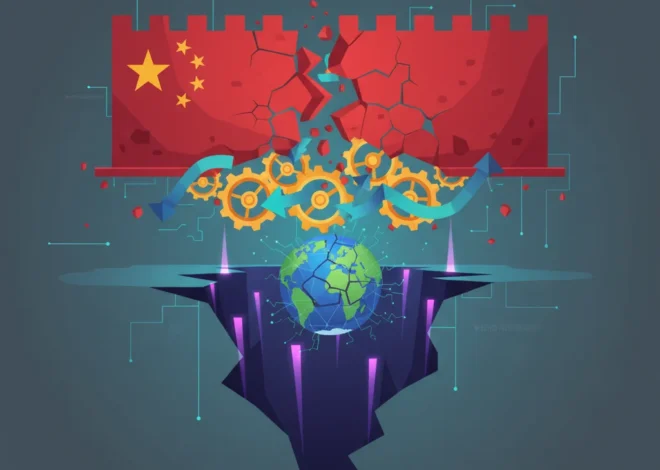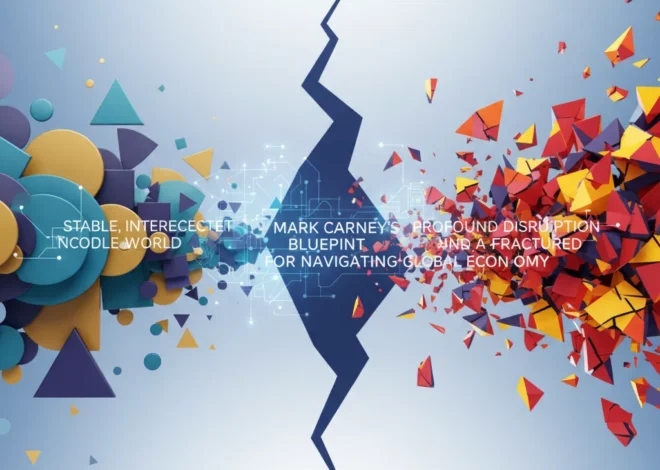
Cameroon’s Political Crossroads: What a Contested Election Means for Investors and the Economy
In the world of international finance and investing, political headlines are more than just news; they are critical data points. A recent development in the Central African nation of Cameroon serves as a stark reminder of this reality. Opposition leader Issa Tchiroma Bakary has made a bold, preemptive claim of a “landslide win” over President Paul Biya, the 92-year-old incumbent who has held power for over four decades (source). This declaration, based on unofficial exit polls and made before any official results were released, has thrown the nation’s immediate future into a state of profound uncertainty.
For global investors, business leaders, and economists, this is not a distant political drama. It is a live-fire stress test of a key regional economy, with significant implications for market stability, foreign direct investment (FDI), and the future of finance in Central Africa. Understanding the nuances of this situation is crucial for anyone with exposure to emerging markets, as the events in Cameroon could create both significant risks and, potentially, unforeseen opportunities.
The Economic Stakes of a Political Power Struggle
To appreciate the gravity of the situation, one must first understand Cameroon’s economic landscape. As the largest economy in the Central African Economic and Monetary Community (CEMAC), Cameroon is a linchpin for regional stability. Its economy is largely dependent on commodities, a factor that makes it inherently vulnerable to both global price fluctuations and internal disruptions.
A contested election or a disorderly transfer of power could severely impact the nation’s key economic pillars. The oil sector, which has historically been a major source of government revenue, could face operational disruptions. Likewise, the agricultural sector—a primary employer and a crucial source of exports like cocoa, coffee, and cotton—is highly sensitive to political instability. Any breakdown in security or logistics could cripple supply chains, affecting everything from local livelihoods to international commodity trading.
For those involved in international investing, the immediate concern is political risk. This risk manifests in several ways:
- Currency Volatility: While Cameroon uses the CFA Franc, which is pegged to the Euro, a severe political crisis could trigger capital flight, putting pressure on the country’s foreign reserves and the stability of its banking system.
- Sovereign Debt: Increased uncertainty could lead credit rating agencies to downgrade Cameroon’s sovereign debt, making it more expensive for the government to borrow money on the international market. This has knock-on effects for the entire economy.
- Foreign Direct Investment (FDI): Long-term investment projects in infrastructure, energy, and technology require a stable and predictable political environment. The current ambiguity is likely to cause potential investors to pause, delaying critical projects and hindering economic growth. According to the UNCTAD 2023 World Investment Report, FDI flows to Africa saw a significant decline, and political instability is a primary deterrent to reversing this trend.
Below is a snapshot of Cameroon’s key economic indicators, providing context for what is at stake.
| Economic Indicator | Recent Data/Estimate | Source/Context |
|---|---|---|
| GDP (Nominal) | Approx. $44 Billion USD | World Bank, 2022 |
| GDP Growth Rate | Projected at 4.3% in 2024 | IMF |
| Public Debt-to-GDP | ~45.8% | IMF, 2023 Estimate |
| Key Exports | Crude Oil, Cocoa, Timber, Cotton, Bananas | Observatory of Economic Complexity (OEC) |
| Inflation Rate | ~7.3% (2023), projected to fall | African Development Bank |
A Legacy of Stagnation and the Promise of Change
President Paul Biya’s 42-year tenure has been synonymous with stability for some, but for many others, it represents a period of economic stagnation and entrenched political patronage. His long rule has created a system resistant to the kind of dynamic economic reforms and advancements in financial technology seen in other parts of the continent. The country has struggled with significant challenges, including the ongoing Anglophone crisis in its western regions, which has displaced hundreds of thousands and severely damaged the regional economy (source).
From an investor’s perspective, a potential change in leadership could be a double-edged sword. On one hand, a new administration could usher in an era of reform, tackling corruption, improving the business climate, and embracing the digital economy. This could unlock immense potential in sectors like fintech, where mobile money and digital banking are still in their nascent stages compared to East African powerhouses like Kenya.
On the other hand, the transition itself is fraught with peril. A contested result could lead to widespread protests, a government crackdown, and a prolonged period of paralysis. Such a scenario would be disastrous for the stock market—specifically the regional Bourse des Valeurs Mobilières de l’Afrique Centrale (BVMAC)—and would send a chilling message to the international investment community.
The Future of Finance: Can Technology Thrive Amidst Uncertainty?
The long-term trajectory of any modern economy is inextricably linked to its adoption of technology. For Cameroon, the potential for a digital transformation in its finance sector is immense. However, this potential is held hostage by the current political climate.
Advancements in financial technology require a stable regulatory framework, reliable infrastructure (including internet connectivity), and investor confidence. A government focused on its own survival is unlikely to prioritize the complex legislative work needed to foster a thriving fintech ecosystem. International fintech ventures looking to expand into Central Africa will likely adopt a wait-and-see approach, diverting capital and resources to more stable markets.
This is where concepts like blockchain could, in a more stable future, play a transformative role. Imagine a future where blockchain technology is used to create a transparent land registry, securing property rights for citizens and investors alike, or to ensure integrity in future elections. While this seems distant now, it highlights the immense opportunity cost of political instability. The very tools that could build trust and efficiency in the Cameroonian economy are sidelined by fundamental questions of leadership and governance.
Lessons from Across the Continent
Investors and analysts can draw valuable lessons from similar political transitions across Africa. The post-Mugabe era in Zimbabwe, for example, demonstrates that the removal of a long-standing autocrat does not automatically lead to economic revival. Deep-seated structural issues and internal party politics can continue to hamper progress for years. Conversely, the relatively peaceful transition in Angola after José Eduardo dos Santos stepped down showed that change can, under the right circumstances, unlock new waves of reform and anti-corruption efforts that attract international partners.
The key variable is the nature of the transition. A process guided by constitutional norms, even if contentious, provides a far better foundation for economic stability than an outright power grab or a violent crackdown. The international community’s response, including that of bodies like the African Union and major trading partners, will also be critical in shaping the outcome.
Conclusion: A Time for Caution and Vigilance
The premature declaration of victory in Cameroon’s presidential election has pushed the nation into uncharted territory. For the finance professionals, investors, and business leaders watching from afar, this is a moment for heightened vigilance, not panic. The fundamental principles of emerging market investing—rigorous risk assessment, deep due diligence, and a clear-eyed view of the political landscape—are more important than ever.
The coming days and weeks will be critical. The official results, the reaction of the security forces, and the response from the international community will determine whether Cameroon navigates this crossroads peacefully or descends into a period of prolonged instability. For now, the world watches, knowing that the outcome will not only decide the fate of 28 million Cameroonians but will also send ripples across the financial and economic landscape of an entire continent.


